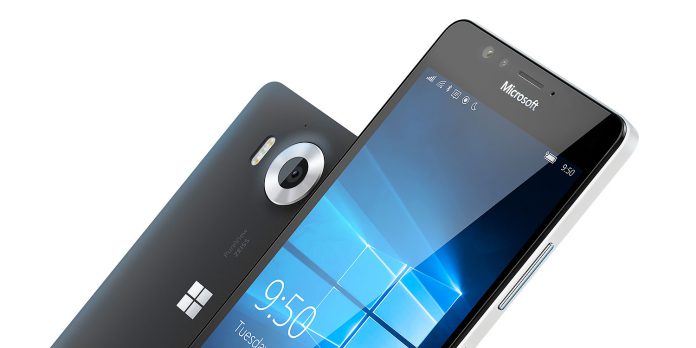Kantar Worldpanel has released mobile market details for the first quarter and in the EU5 nations Windows Phone has all but collapsed.
The Windows platform continues to struggle in the mobile market and things are only getting worse for Microsoft's Lumia hardware. Kantar Worldpanel has released the latest smartphone usage and sales information for Europe, and it does not make happy reading for Windows Phone and Windows 10 Mobile.
Market research firm Kantar says Windows Phone (not just Lumia) device are on rapid decline in Europe, or more specifically the EU5 countries. These are the biggest markets on the continent and include the United Kingdom, Germany, France, Spain, and Italy. In just three months through the first quarter Windows Phone sales declined by half to hold a 4.9% market share across the EU5.
The scale of the collapse is the true surprise here, but perhaps it was inevitable as Microsoft has confirmed sales have tanked recently. Just last month the company revealed that it had sold just 2.3 million smartphones globally for the quarter running January 1 through March 31. Year on year that represented a huge 73% slip.

Consumers are speaking and suggesting there is only room for two major mobile platforms on the market, and those are the established iOS and Android systems. It is increasingly clear that Microsoft is not going to crash that particular party and the more negative commentator would suggest that the Lumia hardware division is nothing more than a hobby.
Microsoft has a problem. On one hand, it could cease making smartphones and in terms of services probably be ok, considering the company is now a cross platform provider with a sizeable footprint in iOS and Android. The problem is, Redmond needs to push its Windows 10 Mobile platform and other manufacturers are not stepping up and taking the platform further.

Satya Nadella, Microsoft's CEO, recently said that the company would still make smartphones, but that it would cut back how many devices it makes to give other companies room to sell more handsets. The problem is those OEMs are not cutting into the market, with Lumia devices still representing between 95-97% of all Windows devices sold.
Cutting its losses on Windows as a mobile platform is simply not an option for the company at this point, not when it is pushing the Universal Windows Platform so strongly. Another problem is that the European figures are merely a brief look at a market decline that is happening all over the globe.
And in Spain, the picture is similarly bleak. Windows phones never gained much traction in the Spanish market, reaching a peak of 7.5% in June 2014, before steadily declining over the last two years. As of March 2016, just 0.6% of smartphones sold there ran Windows.
Kantar Worldpanel director Dominic Sunnebo pointed out:
“For those switching from Windows, Android has offered a better user experience, with a variety of brands and models across a multitude of price points.
In Italy and France, the strongest Windows Phone markets for a time, nearly 10% of Windows mobile users moved to Android in the three months ending March 2016. What's more, they opted for brands like Huawei, Wiko, and Asus, featuring mid-range devices that represent good value for the money. Contrast that with Great Britain, where Android growth is still dominated by Samsung, and driven in this period by mid-range devices like the J5 and A5.”
In almost all of the EU5 nations, Windows represented over 10% of the overall market during periods of last year, but has since declined to low single figure share. For example, in Great Britain the platform held a 12% market share in July last year and since slipped to account for just 6.2% of the mobile market.
In Italy it is worse. Microsoft's platform was a success in the country, accounting for 17.1% of the market in December 2013, but has since collapsed to just 6.3%.
The lack of compelling choice in the high end/flagship market hurts the platform in markets where consumers have more disposable income. The Lumia 950 and Lumia 950 XL are good devices of course, but their lack of availability means anyone looking for an expensive handset is not going to be shopping for a Windows device.






